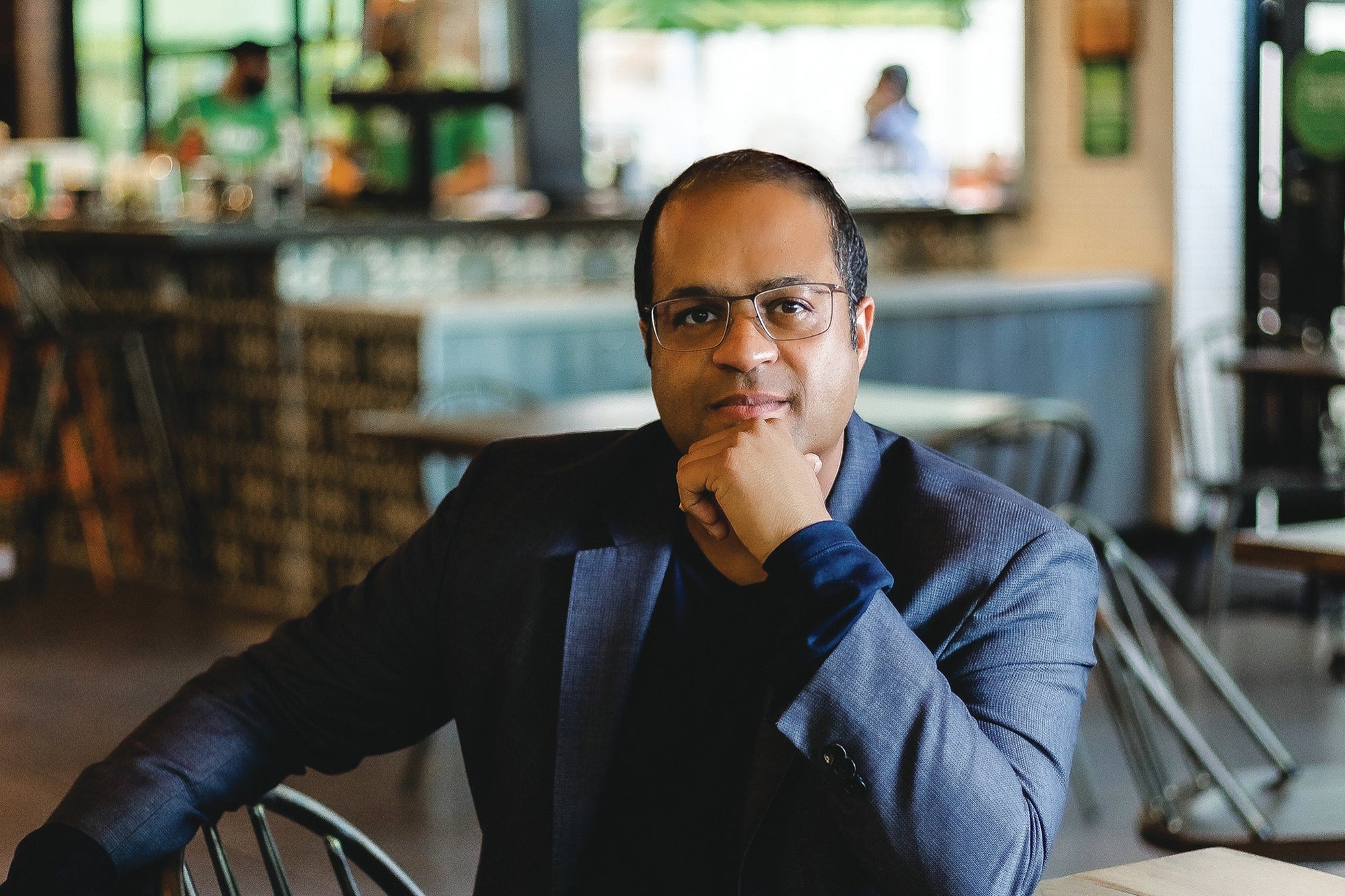This Hotel Franchisee Decided to Become a Restaurant Franchisor. Here's How It's Going. Plus, Vinay Rama shares the most important attribute of a good franchise.
This story appears in the September 2021 issue of Entrepreneur. Subscribe »

Vinay Rama planned on a lifelong career in hotels — and that made sense, for a while. It began in childhood, with his family's motel businesses in Tennessee and South Carolina. Rama spent his teen years at boarding school in India but returned to the U.S. for college, and stayed. In 2015, he began developing a Marriott and a Holiday Inn Express in Orlando, Florida. Eventually, he took over five more Marriotts in the Orlando area.
Rama had no plans to branch out from hotels, but in 2016, an unexpected opportunity presented itself. Ruby Tuesday was selling Lime Fresh Mexican Grill, a casual, made-to-order restaurant that had seven units in South Florida. Rama and four friends decided to go in on the $4.6 million deal together. At the time, he saw it as a passive investment to raise capital for future hotels. But when he didn't like the way his friends were operating Lime, he bought out three of them. Since then, he has grown the franchise to 15 units, and he credits much of his success to the lessons he has carried from one side of the franchising world to the other.

When you took over leadership at Lime, you had never run a restaurant. Did you get any good advice?
I call myself an "accidental restaurateur" because I never planned on getting into the business. We hired a consultant, and I'm glad we didn't listen to some of their report. They said things like, "Put freshness cues into the design. Hang up posters that teach the customer about your brand." As a guest, do I really want to read all your propaganda and marketing? No. That's why when people walk into our restaurant, it feels different. It feels elevated in a nonfussy, comfortable way.
But there were a couple of bullet points from [the consultant's report] that kind of drove what we see today. They mentioned, "You're cooking everything from scratch, but nobody sees it." The prototype was an exhibition kitchen — like this big glass that you look into. It hasn't been possible to install these in all the locations, so we've renovated where possible. We see that at upscale Chinese restaurants or Michelin-star restaurants, but you don't see it in the fast-casual segment. It's just about being open-minded and careful in decision-making.
Related: What You Really Need to Look for When Considering a Franchise
What's it been like shifting between the franchisee and franchisor mindsets?
As a franchisee, you're executing on a brand's vision and promise. It's nitty-gritty. As a franchisor, you're defining things in detail, but you're not actually doing them. You're depending on a franchisee, and you're just quality control. You're more on the creative side of things, which I love. Frankly, as a hotel franchisee, I was reaching a little bit of an intellectual plateau. It was like, buy another piece of land, find a brand, do the same thing, raise the capital. So when the franchisor stuff came up, it added to my skill sets. I'm learning more, and our hotel teams are learning more, too.
What are the hallmarks of a good franchise?
The number-one answer that comes to mind is that the brand is ever-evolving. Everybody wants to define a brand and then replicate it. To me, that's antiquated. I want to create a brand that's dynamic. The other big one is: If you don't take care of your people, good luck. I've been fortunate to work with brands like Marriott and Hilton, which are franchisee-centric. It's a partnership. They know that without the owners, they can't be successful.








